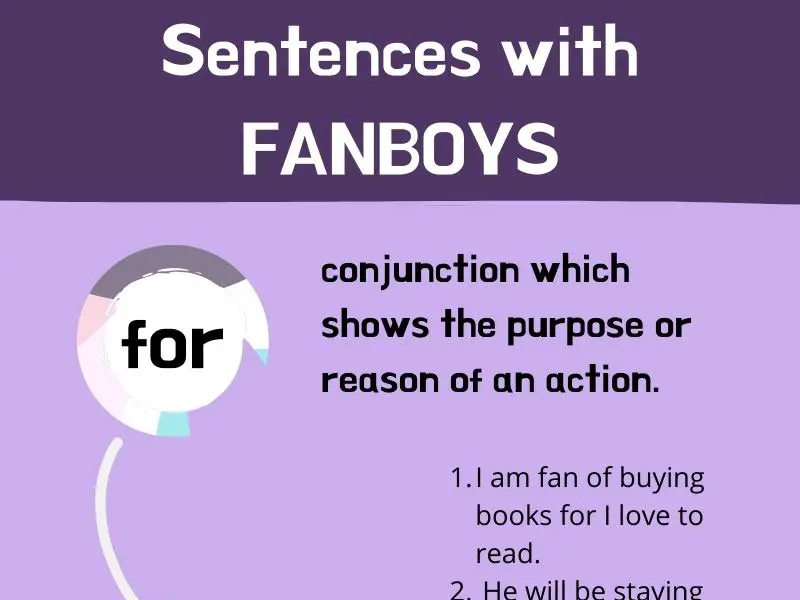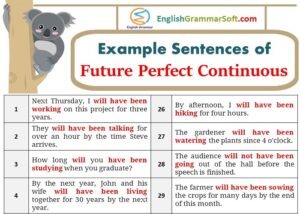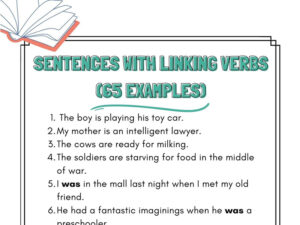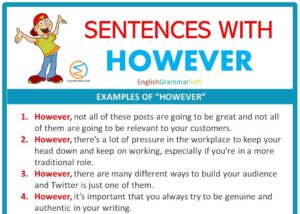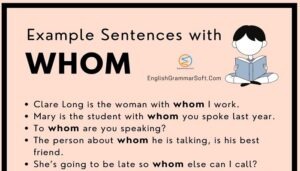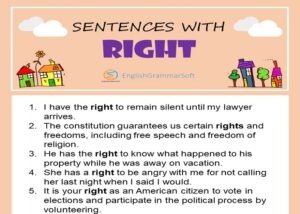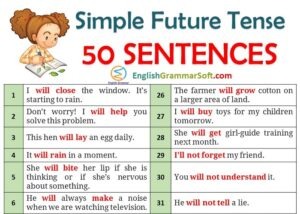Examples of Sentences with FANBOYS
FANBOYS – an acronym for words known as coordinating conjunctions. These words: For, And, Nor, But, Or, Yet and So, were abbreviated for easy recall. In today’s lesson, we are going to have fun and learn how to make Sentences with FANBOYS.
Conjunctions are words that connect words, clauses, or phrases together and complete the thought of a sentence. In fact, without conjunctions, such as FANBOYS, it would be hard to express ideas and opinions in a free-flowing conversation. It allows you to produce complex sentences into one instead of making chops of simple sentences.
For example, instead of making the following sentence: I like to play an instrument. I like to sing. I must enroll in a music lesson., we can make a complex sentence using a conjunction to connect each thought into one, like: “I like to play instrument and sing, so I must enroll in a music lesson”. In the sentences below we will learn how each word bridges the gap between two ideas and makes it into one.
Sentences with FANBOYS
“for” conjunction which shows the purpose or reason of an action.
- I am fan of buying books for I love to read.
- She was awarded as best employee of the year for his excellent performance.
- He will be staying in Canada for good.
- For the benefit of everyone, this policy is implemented.
- We went to Australia for a vacation.
- Dad is always there during my singing competition, for he loves to hear me singing.
- You need to take a medicine for you to get better soon.
- For your good behavior today, you will have a bar of chocolate.
- He studied well for his future.
- He always bought flowering plant, for he loves to plant in his Garden.
“and” – to show connection or addition to link sentence elements.
- Both the teachers and school administration commits to discipline each students.
- I love to eat apple and banana.
- I have an egg and a pair of bread for my breakfast today.
- Her father is her best friend and counselor.
- Maria loves to sing and dance.
- Lita went to the market and headed to the school.
- This tree and tall and sturdy. It is a beautiful tree.
- She laughs and cry when she remembers her past experience.
- Grandma drinks her milk and ate her oatmeal at night.
- This girl can’t read and write. She is now in her 1st grade in elementary.
“nor” – used in a sentence as a conjunction. It shows and follows a reversal in the sentence.
- Last night it feels like, it was neither too hot nor too cold.
- I was unable to meet his sister, nor did I want to.
- I will not make any agreement with you nor with your brother.
- This tree has no fruits, nor does it have any blossoms.
- She has no skills in playing instruments, nor interest in music.
- I’m not famous, nor do I wish to become one.
- His mind was not in his work, nor does his heart is passionate about.
- He doesn’t read books, nor scan any.
- His boyfriend is not polite, nor does he had the courteous attitude.
- Flora doesn’t save any penny, nor had the attitude of being thrifty.
“but” – when used as conjunction it may introduce “contrast or opposition” to a statement.
- I don’t know about the decision of the group, but as for me, I’ll go for it.
- These flowers beautiful, but they smell awful.
- I apologize, but I cannot come tomorrow.
- I’ve been to different countries, but Japan is the most I love.
- Andrew lost her dog, but he doesn’t feel sad about it.
- She loves him, but doesn’t appreciate it.
- I’m sorry to interrupt, but there’s somebody looking for you.
- He asked an apology, but she she’s not yet ready to forgive him.
- I promised to visit you last night, but I wasn’t able to come.
- The Doctor gave him a medicine for his cough, but he refuse to take it.
“Or” – a conjunction which attaches two or more alternatives or opportunities showed in a sentence.
- You have to choose whether to take medicine or law.
- Which one do you like? This one, or that one?
- You can come this evening or tomorrow afternoon.
- Shot or long hair, you’re still beautiful.
- This juice is good for young or old people.
“Yet” – is a conjunction that is use to show contrast and often indicates negative statement.
- I told you to stop what you’re doing, yet you did not listen.
- Their family has plenty of money, yet they still feel wanting.
- It felt odd and yet it is great to go for ice skating!
- All of them heard the noise, yet none of them wonder what it was.
- Her husband dearly loved her, yet she still longing for someone else.
“so” – is a subordinating conjunction which shows a decision as a result of an action taken.
- The seller has a good convincing power, so I bought one of his product.
- He has a high grade, so he was in the dean’s list.
- You have to keep in mind all those I taught you, so that you won’t go astray.
- I pitied that old beggar, so I gave him the grocery I bought.
- It’s raining so hard, so I better stay home and sleep.
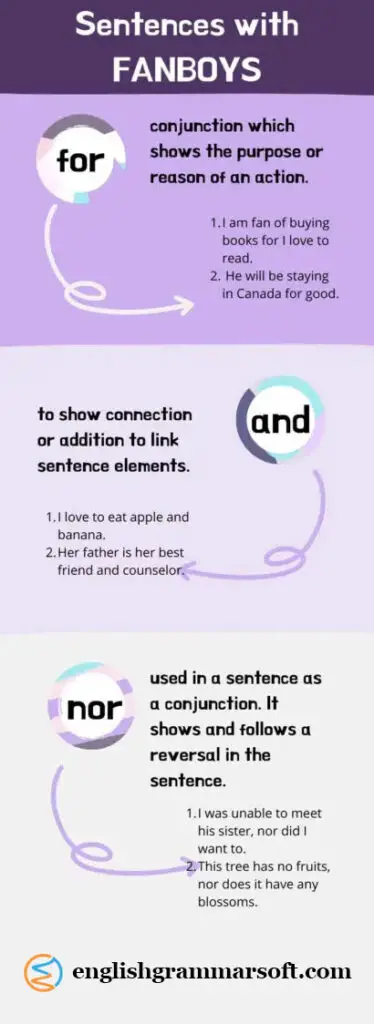
Conclusion
FANBOYS (for, and, nor, but, or, yet, so) are simple words yet influence the meaning and thought of a sentence. In the example above, (“sentences with FANBOYS”) it can be concluded that without these words, sentences won’t have a completely integrated thought.
Take a look at this example: “The seller has a good convincing power, so I bought one of his products.” Note that if we omit the conjunction “so”, “The seller has a good convincing power, I bought one of his products”, the two ideas are not linked as one. There will be two thoughts that aren’t connected “The seller has a good convincing power” and “I bought one of his products”. But with the conjunction, we can make a complex sentence but will create a single thought. So to say, “The seller has a good convincing power, so I bought one of his product”, will make the sentence complete and comprehensible to the reader.
